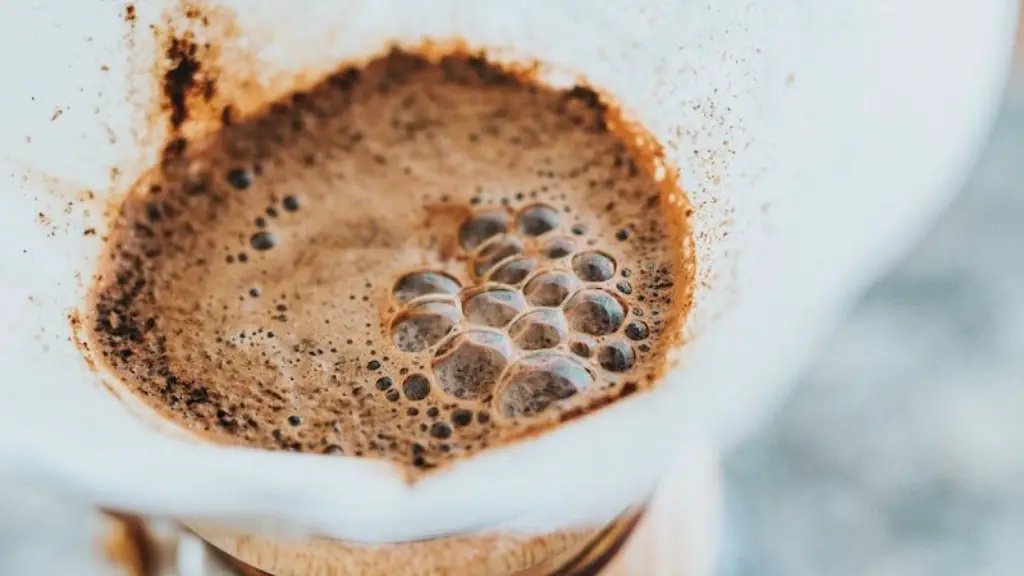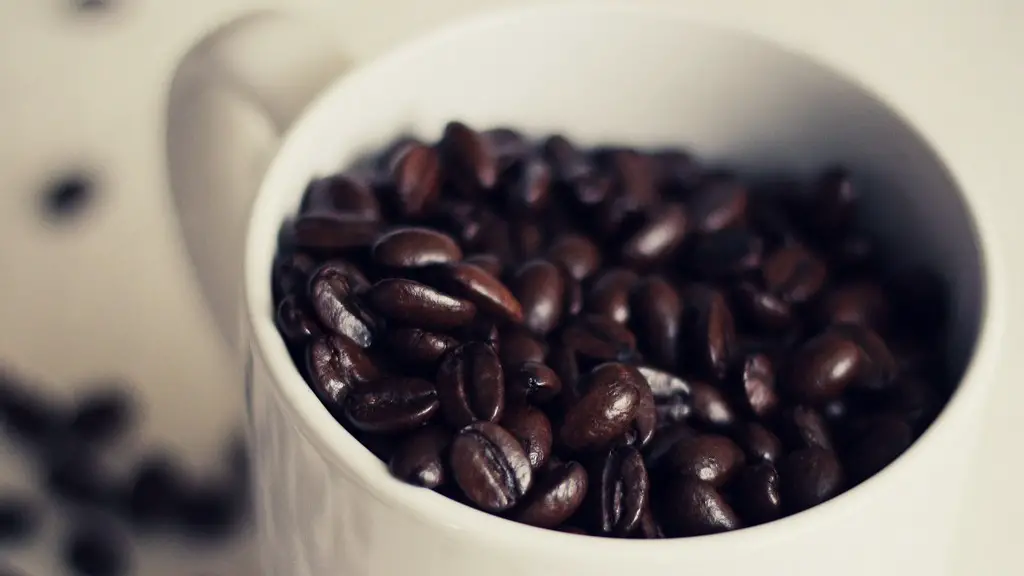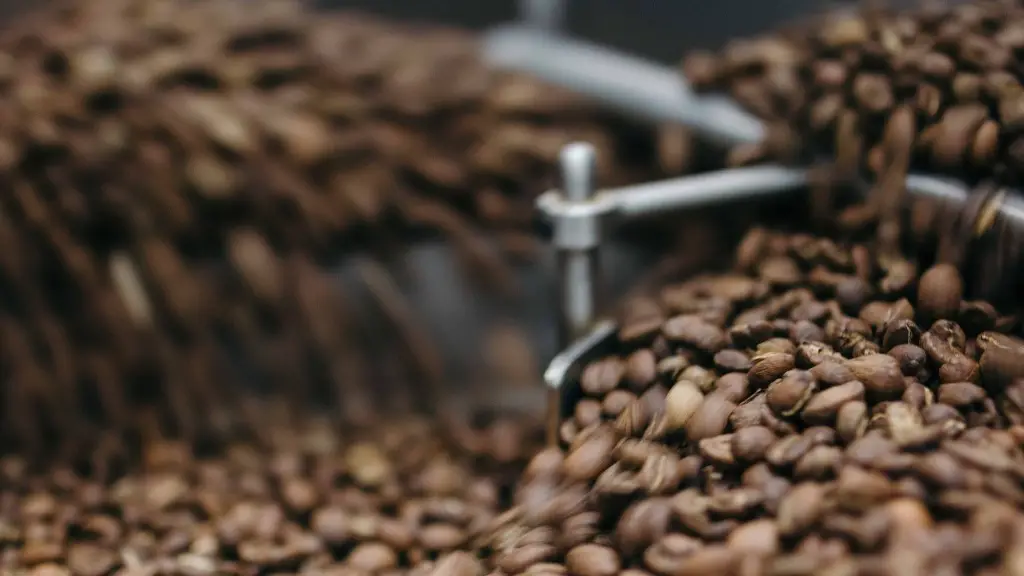Intermittent fasting, or IF, is a popular nutrition plan that involves cycling between periods of fasting and eating. There are many different approaches and techniques that people can use to achieve their fasting goals, but one food item in particular has become a constant debate in the IF community – coffee. Does drinking coffee break your fast, or is it okay to have a cup during a period of fasting?
To understand this question better, it is important to consider the evidence about how coffee affects the body. Studies have found that coffee is not wholly nutrient-dense, however it does contain some important compounds, such as caffeine, polyphenols, and other antioxidants. Caffeine is the most talked about component in coffee, and it has been shown to increase energy levels and alertness. Polyphenols are linked with a number of benefits, such as reduced inflammation and a stronger immune system. Together, these two compounds may help people to feel more energized when fasting.
Dr. Neal Barnard, MD, president of the Physicians Committee for Responsible Medicine, states that coffee should be okay during a fasting period as long as it is sugar-free, and is not causing excessive hunger. He advises that it is important to listen to your body while fasting and to pay attention to how your body reacts to coffee, especially if one experiences any dizziness or nausea after drinking it. Additionally, Dr. Barnard advises that those who are new to fasting should start off slowly with coffee and other beverages, increasing the amount slowly over time to find a comfortable level that works for their body.
In terms of whether or not coffee can break a fast, this depends on the person. For some, a single cup of coffee may not affect their fasting window at all. However, for others, coffee may trigger hunger or cravings, which could potentially undo their fasting efforts. For this reason, it is important to pay close attention to how coffee affects your own body, as this can vary from person to person. Additionally, if coffee does trigger hunger or cravings, it is best to reduce or avoid it entirely.
Although coffee is generally safe to drink while fasting, there is some disagreement among experts on this topic. Some argue that coffee should be avoided as it contains a number of compounds, such as caffeine, that could potentially increase hunger and cravings. Additionally, some experts contend that coffee can raise blood sugar levels, potentially causing a person to feel less energized during a fast.
Ultimately, whether or not coffee breaks a fast is a personal decision and should be based on what works best for the individual. It is important to pay attention to how coffee affects your own body and to adjust accordingly. Additionally, drinking unsweetened black coffee or adding a little bit of almond milk may help to reduce the potential effects of caffeine and other stimulating compounds.
What are the benefits of drinking coffee while fasting?
Studies have found that there can be a number of benefits associated with drinking coffee during a period of intermittent fasting. Caffeine and polyphenols found in coffee have been shown to boost energy levels, reduce inflammation and even improve mood. Additionally, some experts suggest that caffeine can help to suppress appetite, which could potentially help people to stick to their fasting goals.
Coffee is also a good source of antioxidants, which help to protect the body against oxidative stress. Oxidative stress is caused by an imbalance between free radicals and antioxidants in the body, and has been linked to a number of health concerns, such as heart disease and cancer. Coffee is not a substitute for eating a nutrient-dense diet, however it could still potentially provide some extra support in terms of fighting oxidative stress.
Finally, some experts suggest that drinking coffee during a fast can help to extend the fasting period. This is because caffeine can encourage the body to shift from burning carbs to burning fat. As such, drinking coffee while fasting could potentially help people to achieve their goals of weight loss or improved health.
What type of coffee is best?
When it comes to drinking coffee while fasting, the type of coffee you choose can make a difference. Unsweetened black coffee is generally seen as the best option as it is not only calorie-free but contains the lowest amount of caffeine. As such, it can minimize potential side effects, such as cravings and sugar crashes. Additionally, adding a little bit of almond milk or heavy cream to your coffee can help to decrease the effects of caffeine, making it an even better option for those on an intermittent fasting plan.
Organic, locally-sourced coffee tends to be the best option, as it is free from pesticides, herbicides and other potentially harmful substances. Additionally, organic coffee is often less acidic than conventional coffee and has been found to contain higher amounts of antioxidants. If drinking coffee is part of your intermittent fasting plan, it is helpful to choose organic, locally-sourced coffee for the best health benefits.
Tips for drinking coffee during an intermittent fast
The following tips can help make coffee a part of your intermittent fasting journey:
- Start slow – it is best to start off with small amounts of coffee and build up to the dosage that is comfortable for you.
- Choose unsweetened, black coffee – opt for unsweetened black coffee with no added sugars or artificial sweeteners.
- Be mindful – pay attention to hunger levels and how coffee affects your body.
- Avoid cravings – keep an eye on hunger levels and adjust your coffee intake accordingly.
- Drink organic – opt for organic, locally-sourced coffee for the greatest benefits.
What are the risks of drinking coffee during an intermittent fast?
Although there are many potential benefits to drinking coffee during an intermittent fast, there are also some potential risks. Caffeine can be quite stimulating and increase alertness, which can make it difficult to relax and get quality sleep. Additionally, caffeine can increase heart rate and blood pressure, so it is important to pay attention to the effects it has on your own body.
Drinking too much coffee can also cause a number of digestive issues, such as upset stomach, nausea, diarrhea and constipation. Additionally, too much caffeine can cause headaches and feelings of restlessness. For this reason, it is important to pay attention to hunger levels and how your body responds to coffee, as this can help to minimize any potential side effects.
Conclusion
Drinking coffee during an intermittent fast is a personal decision, and one that should be based on what works best for the individual. Caffeine and polyphenols found in coffee can potentially increase energy levels and decrease hunger, however the effects can vary from person to person. It is advisable to pay attention to how coffee affects your own body and to adjust accordingly.



